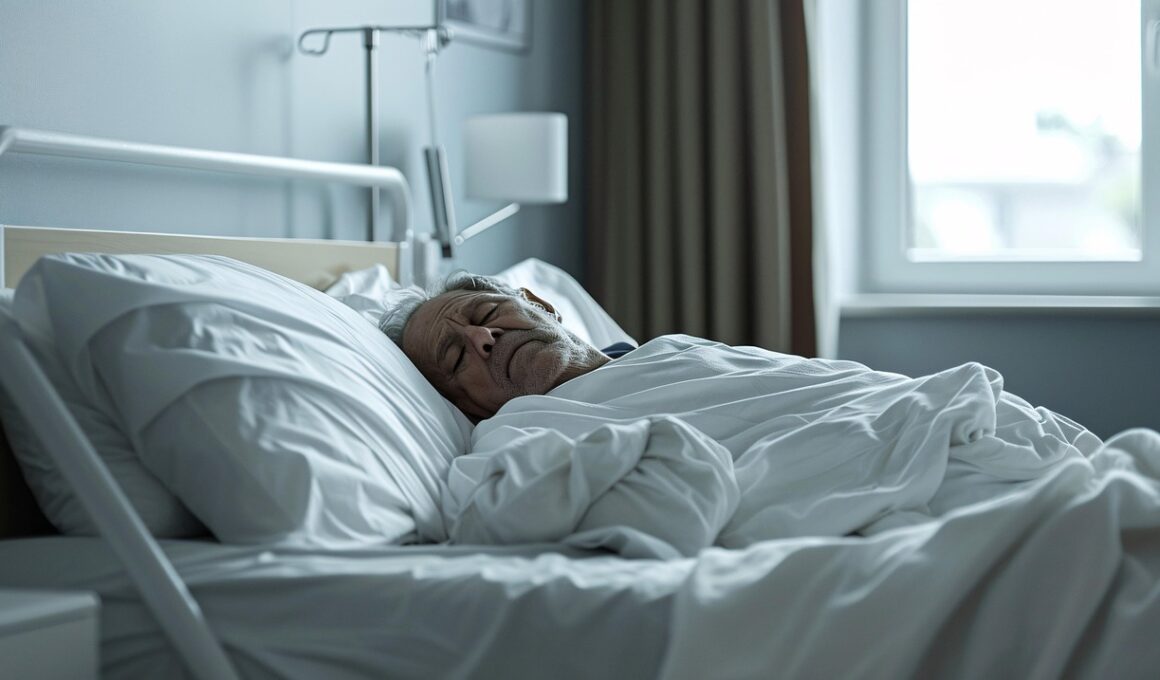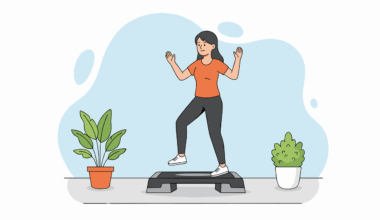The Role of AI in Personalized Sleep Recovery Plans
Artificial Intelligence (AI) has become an integral part of enhancing sleep recovery plans, fostering customized solutions tailored to individual needs. Sleep technology harnesses AI algorithms to analyze data gathered from sleep tracking devices, providing insights into sleep patterns. With this data, AI can identify issues affecting a person’s sleep quality, such as irregular sleep schedules or environmental factors. By understanding these patterns, AI systems can recommend personalized recovery strategies, improving sleep health. Wearable devices, including smartwatches and sleep trackers, are crucial in monitoring various metrics like heart rate, body temperature, and even noise levels during sleep. This data informs the AI’s understanding of how well-rested a user feels and helps in tracking progress over time. As technology advances, many applications now employ machine learning techniques to adapt recommendations to changing user behavior and needs. Users can receive AI-generated insights via mobile apps that guide them towards better sleep practices. Overall, the engagement between AI and sleep technology provides a proactive approach towards optimizing sleep recovery and enhancing overall well-being.
The Science Behind Sleep Tracking
Sleep tracking technology utilizes various mechanisms to gather data about an individual’s sleep quality, shedding light on the science behind sleep. Devices measure cycles of REM and non-REM sleep, crucial for effective recovery. AI helps in interpreting this data, generating recommendations aligned with optimal sleep practices. Similar to heart rate monitoring, sleep analytics quantify performance metrics, illustrating connections between sleep and cognitive function. By analyzing historical data, the AI can establish baseline sleep patterns, facilitating a deeper understanding of fluctuations in sleep behavior. Users receive personalized suggestions to improve sleep hygiene based on their data, addressing common factors like screen time, anxiety, and environmental disturbances. Moreover, AI’s predictive capabilities ensure these suggestions evolve, adapting to changing lifestyles. The evaluation of positive changes leads to educated decisions, potentially turning subjective sleep issues into manageable solutions. Furthermore, the seamless integration of sleep trackers with mobile applications provides convenient accessibility to personalized insights. As users gain awareness of their sleep health through technology, they’re more likely to build sustainable recovery habits, further enhancing the impacts of effective sleep hygiene practices.
Data privacy remains a critical consideration in the realm of sleep tracking with AI integration. Users often share personal health data with sleep tracking devices, raising concerns about how this data is used and secured. To address these challenges, companies emphasizing user consent and robust privacy policies can foster trust in technology. Employing encryption and data anonymization techniques helps protect sensitive information, offering users peace of mind. Transparency about data usage and providing control over shared information are essential steps to ensure user satisfaction. Sleep technology providers can engage with users to discuss security practices, building a collaborative environment. Moreover, health professionals guiding patients on safe sleep habits could benefit from AI technologies while maintaining confidentiality. Sharing aggregate data trends may help in research without compromising individual privacy. Increasing awareness of data management practices empowers users to make informed decisions regarding the use of AI for their sleep recovery plans. By addressing privacy and ethical concerns, users can fully embrace the potential benefits of AI technology without compromising their safety in the digital age. The balance of innovation and integrity will enhance the future of sleep tracking and recovery.
Future Trends in Sleep Recovery
Looking ahead, the future of personalized sleep recovery plans powered by AI is promising, likely incorporating innovative solutions based on advancements in the field. The integration of smart home technologies, including lighting and temperature control, will allow comprehensive sleep environments tailored to individual needs. AI systems could automatically adjust these variables based on user sleep patterns, optimizing conditions for restorative sleep. As the world becomes more interconnected, sleep appliances could communicate with each other, creating a harmonious sleeping environment. Voice-activated AI assistants might offer real-time suggestions during bedtime routines, ensuring users adopt optimal relaxation practices. Additionally, the development of more advanced biometric sensors will enhance data accuracy, enabling reliable insights into sleep quality. With machine learning continuously refining these recommendations, individuals can expect increasingly personalized recovery plans. Further research will unlock deeper connections between lifestyle choices and sleep health, resulting in actionable strategies that cater to diverse populations. This progression paves the way for proactive engagement in maintaining a balanced sleep schedule. Ultimately, the fusion of technology, health, and personalized care will redefine how individuals approach sleep recovery.
Moreover, AI is also paving the way for mental wellness interventions linked to sleep health. By recognizing the intricate relationship between sleep and mental health, AI systems can suggest personalized mindfulness and relaxation techniques tailored to individual needs. This approach ensures that users not only focus on enhancing their sleep quality but also on fostering mental well-being. Advanced algorithms may analyze factors influencing mental states before sleep, such as stress levels or daily emotional experiences. Incorporating holistic wellness practices into sleep recovery plans can yield impactful benefits. Tools like guided meditation and breathing exercises could be introduced in conjunction with sleep tracking insights. These AI-supported interventions could be delivered through engaging mobile applications, making self-care more accessible and personalized. A dual focus on improving both sleep and mental health sets a foundation for lifelong wellness. Furthermore, continuous adaptation to user preferences and progress allows AI systems to refine recommendations, ultimately fostering healthier lifestyles. As the conversation around sleep evolves, the integration of mental health resources through AI enhances the breadth of user-centered recovery plans.
Challenges in Implementing AI Solutions
While the benefits of AI in personalized sleep recovery are significant, several challenges remain in implementing these solutions effectively. First, there are concerns regarding the efficacy and accuracy of sleep tracking technologies, as not all devices capture the same level of detail. Developing universally accepted standards for sleep tracking innovation is crucial in bolstering these technologies’ reliability. Furthermore, users may face information overload, struggling to understand and apply the insights provided by AI algorithms. Streamlining data into easy-to-understand recommendations encourages better user engagement and adherence to suggested strategies. Additionally, ensuring seamless integration of different sleep tracking systems can pose technological hurdles, as interoperability may vary across devices. Collaborating with sleep experts, researchers, and technology developers can assist in overcoming these barriers. Moreover, the focus on education regarding the interpretation and application of data stays paramount in guiding users toward healthier habits. Addressing these issues will lead to successfully employing AI innovations in enhancing personalized sleep recovery plans. By navigating obstacles proactively, the adoption of AI technology in sleep health will bring transformative changes to individual recovery experiences.
In conclusion, the role of AI in personalized sleep recovery plans is undeniably transformative, impacting how individuals approach their rest and restoration. Through sophisticated data analysis, AI systems present tailored insights that empower users to make informed decisions about their sleep habits. As advancements in sleep technology continue, user engagement will play a critical role in establishing successful recovery plans that adapt to personal preferences. The incorporation of mental wellness suggests a shift towards holistic health management, affirming that optimal sleep is intertwined with emotional well-being. By addressing data privacy and ethical challenges, the potential of AI can be unlocked, ensuring users feel secure while benefiting from these innovations. The future holds vast opportunities for improving recovery experiences through smart technology, promoting better sleep hygiene practices, and encouraging lifestyle interventions. Continuous research and collaboration will pave the way for breakthroughs in sleep health, equipping individuals with the tools they need to achieve restorative sleep consistently. Embracing this technology could redefine our understanding of sleep recovery, ultimately leading to healthier communities through enhanced sleep practices.
![]()


